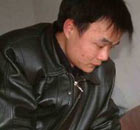Top Biz News
Regulator plays down hot money fears
By Zhang Ran (China Daily)
Updated: 2010-01-20 08:08
 |
Large Medium Small |
The $453 billion increase in China's foreign exchange reserves last year partly reflected currency valuation effects and was not solely due to inflows of "hot money", the State Administration of Foreign Exchange (SAFE) said yesterday.
The foreign exchange regulator also refuted media reports that there could have been hot money inflows of nearly $167 billion into the country last year.
Most of the reports were based on common methods of calculation and the hot money inflows were arrived at after subtracting the nation's trade surplus and foreign direct investment from the increase in foreign exchange reserves.
"(The method) is not scientific and its conclusions are also misleading," SAFE said yesterday on its website.
"When we analyze the increase in foreign exchange reserves, apart from foreign trade and foreign direct investment, we also need to consider capital flows from services trade, foreign debt, individual and equity investment items as well as the return on the foreign exchange reserves themselves and changes in (foreign currency) valuations," SAFE said.
"The appreciation of non-dollar currencies against the dollar in 2009 has definitely led to growth in outstanding foreign exchange reserves calculated in dollars," it said.
The regulator said it has sufficient information to explain the $167 billion gap of last year.
But it acknowledged that "hot money" was entering China disguised as trade and investment. In addition, low dollar interest rates are also increasing the money flows.
"China needs to retain controls on capital flows," SAFE said, adding it would push forward convertibility of the yuan and give individuals and institutions more opportunities to invest abroad.
"It is foreseeable that 'hot money' will continue to rise in 2010 given China's economic recovery and strong speculation that the central bank will tighten monetary policies in the following months," said Li Jianfeng, an economist with Shanghai Securities.
| ||||
The central bank sold one-year bills at a yield of 1.9264 percent in open-market operations. The yield rose eight basis points, or 0.08 percentage points, matching last week's increase.
"The eight basis point hike is within expectations, and the PBOC will continue to use the management tools to mop up liquidity," said Ma Yusheng, a bond analyst with Guoyuan Securities.
Ma said the yield would continue to rise to around 2.5-2.7 percent after which the PBOC may raise the benchmark interest rate to drain liquidity.
"The yield hike's main purpose is to raise the cost of financing for banks in the interbank market and thereby control new loan growth, and prevent bubbles in the property and stock markets," said Li.
China's commercial banks extended 379.8 billion yuan of new loans last month, capping a record 9.59 trillion yuan credit expansion for the year.
Property prices in 70 Chinese cities rose at the fastest pace in 18 months, according to official data.
The central bank announced an increase in the banks' reserve requirement ratio (the amount of funds banks must set aside as reserves) on Jan 12.?













